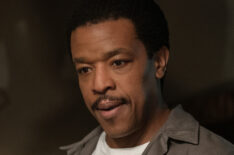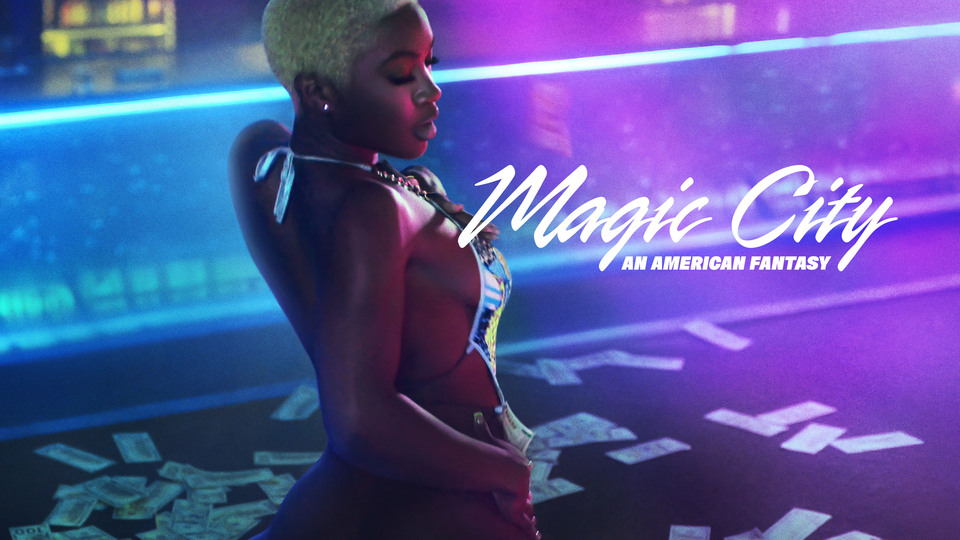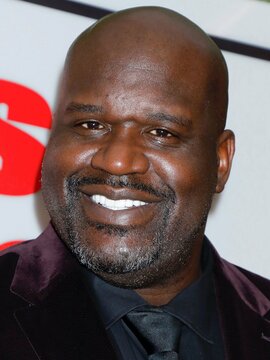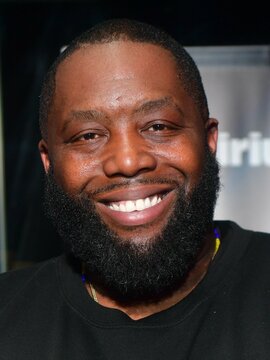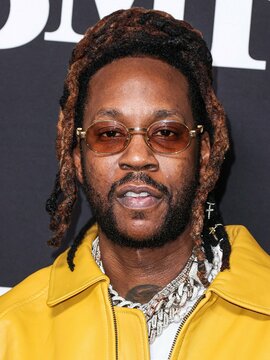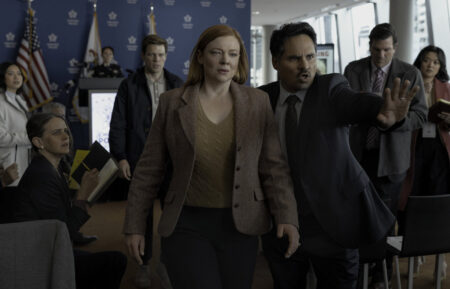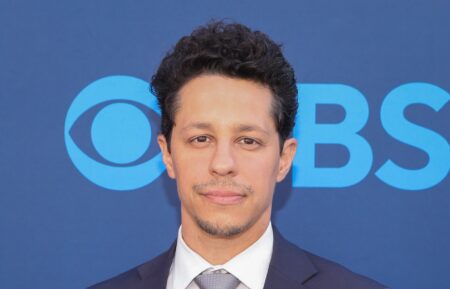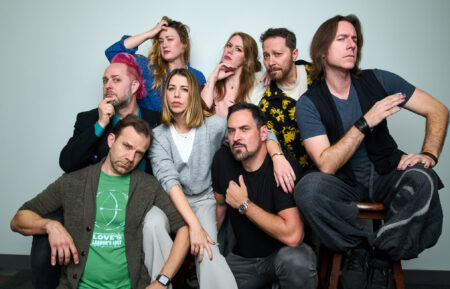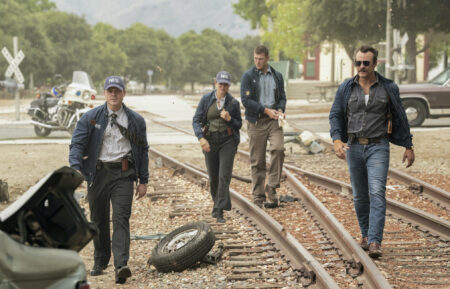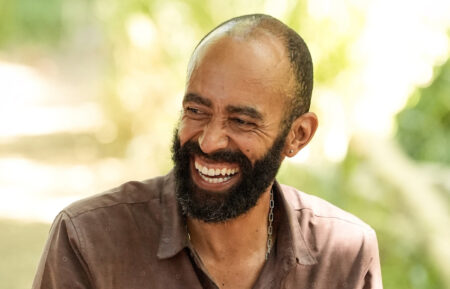‘Magic City: An American Fantasy’ Creator on ‘Studio 54’ Inspiring Him to Highlight Atlanta’s Sexy, Historic Hotspot
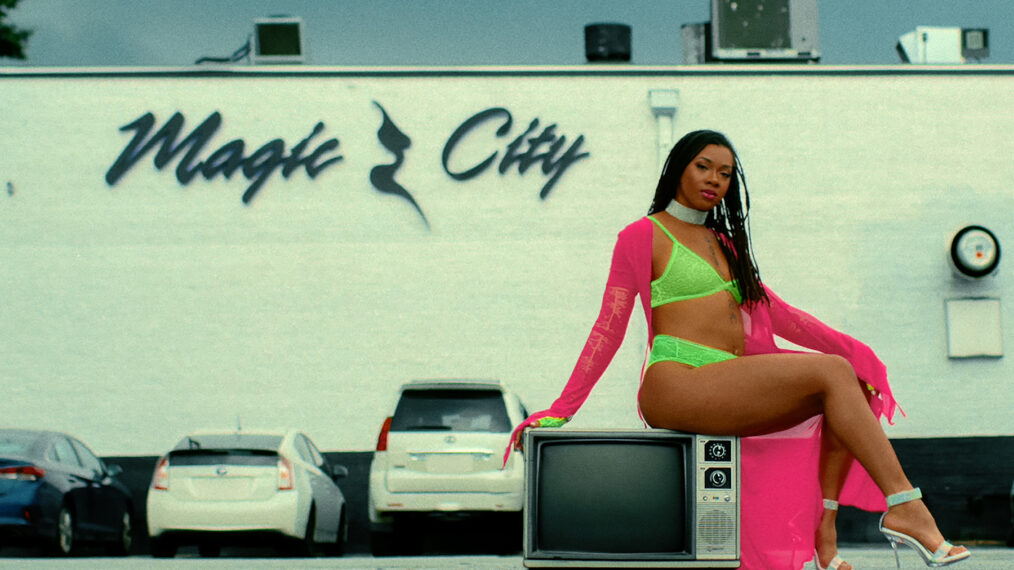
Q&A
Magic City: An American Fantasy explores a unique institution in Atlanta’s cultural history: the title strip club, which became a haven for A-listers and gave way to several iconic rap moments, including Tag Team’s megahit “Whoomp! (There It Is)” and Nelly’s controversial “Tip Drill” video.
Creator Cole Brown was inspired by Studio 54, which documented the infamous nightclub. “This club was open for three years, and there’s this other version of this in Atlanta that is for Black people that’s been open for 40 years,” he remembers thinking. “So if that place has such an honored place in New York history… what does Magic City deserve?”
The episodes explore the personal history of the club, told by founder Michael “Magic” Barney and his family, dancers from across generations, and celebs who frequented it, including Shaquille O’Neal, Big Boi, and Jermaine Dupri (also producer). “It’s kind of been a Forrest Gump of Atlanta culture,” Brown says of the club’s impact. “It felt like a really interesting vehicle to try to tell the cultural evolution of that city.”
Beyond the exotic dancing and music moments, this is a story of professional triumph: “You have a guy who came from Camden [County, Georgia]… moves to Atlanta, builds a business, and is now handing that business down to his sons,” Brown says. “It’s a true Carnegie, Rockefeller American dream story.”
Ahead of Magic City‘s premiere, with the first of five episodes airing on Starz on August 15, read on to find out more about how Cole Brown brought one of Atlanta’s previously unsung institutions to screen life in this docuseries.
We’ve seen adjacent parts of this story told through Freaknik last year and then the BMF drama on Starz. So what was it about Magic City, specifically, that you felt like you wanted to make this?
Cole Brown: Yeah, I mean, there’s a lot there. We started on this process three and a half years ago, almost four years ago now — so before Freaknik came out. It’s actually kind of funny that there’s been just such a cultural moment and interest in Atlanta narratives right now because our beginnings in this process really predates that. What was interesting to me was just this story. If you look at it from the barest bones, you have a guy who came from Camden as a poor young guy, moves to Atlanta, builds a business, and is now handing that business down to his sons. So, to me, that is like the core tenets of an American dream story. You add all the glitz and glamor and sexiness that comes with the actual industry that he chose and the stars that come through, and all of that is really appealing, and I was really interested in that. I think that the core, the skeleton of this story, is just something that everybody should be familiar with as a true Carnegie [or] Rockefeller American dream story, and that’s what I was initially really interested in.
And then two, and you mentioned the Atlanta part, it felt like a really interesting vehicle to try to tell the cultural evolution of that city and broader popular culture as well. So, yes, this is a story about Magic City, but we’re also incorporating a lot of the political turmoil that’s happened in that city, a lot of the cultural evolution of that city, the evolution of hip hop from this club. It’s kind of been a Forrest Gump of Atlanta culture across the last 40 years. We were able to use it as the origin but then break off into all sorts of other interesting topics as well.
A lot of this feature delves into the connection that this club had with culture, especially the rap scene. How important was it for you to have industry figures like Drake and Jermaine Dupri involved?
So important…. Basically, the very first conversation I had about this project was with Jermaine Dupri, and what a person for this to start with, because he’s the mayor of Atlanta. I mean, there is no one with a stronger reputation in music and in culture and in that city than him… He really was the source of like, “Cole, we have to do this the right way. We have to be authentic to the Atlanta culture.” And part of being authentic is, yes, having Jermaine Dupri and Dominique Wilkins and Big Boi and 2 Chainz and so many other people that really helped shape that space. And then I should mention also having the people that literally shaped that space, and that’s the dancers, and it was really important to us to incorporate all of their stories as well.
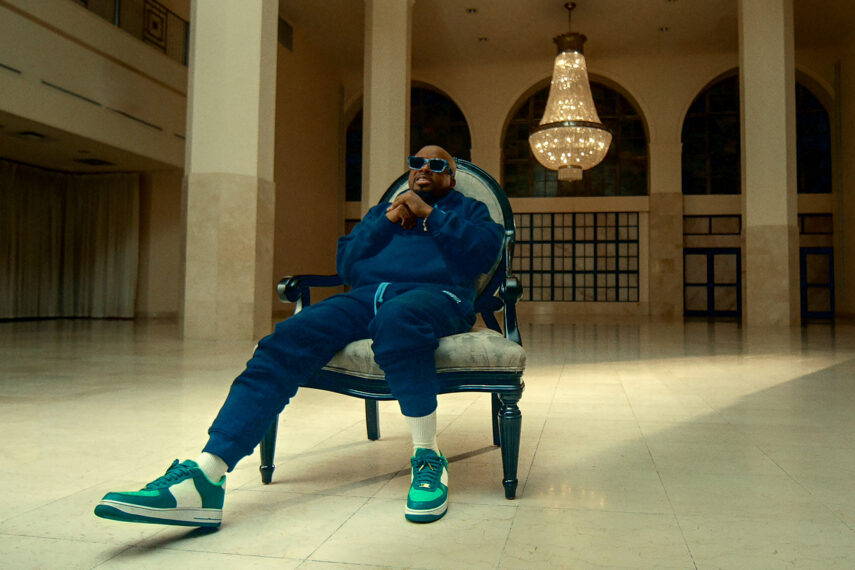
Starz
You alluded to some of the competing perspectives that you delve into with this docuseries, like with the Spelman scholar who protested against the message of the organization. So what was it like for you when you were digging through that? Were there any surprises that came to you when you were exploring that element?
I think it might have been 2004, two decades ago now, that controversy made headlines. It’s something that we kind of relegate to ancient hip-hop history at this point. I don’t know that your average 20-something-year-old really knows about the “Tip Drill” controversy at this point. But what I found so interesting, and yes, in some ways surprising, about it is, if you look at how we tell that story, you tell it through the eyes of … four or five different Black women with drastically different opinions on how that incident happened. So was this surprising, maybe, but really, just what was rich to me was the ability to engage with all these very strong, very intelligent, very independent-minded Black women who came to very different conclusions about what happened there. So that’s another example of taking something that could be dismissed as this Nelly music video but having a pretty profound conversation from it.
When you were coming into this project, were there any other documentaries or docuseries that you were inspired by with the format or the content?
Yeah, actually, it’s funny. No one’s asked me that. The one that was really top of mind when I first had this thought was the Studio 54 documentary. [It] had just come out when I was starting to think about this, and in many ways, it led me to think about this because I was watching this movie, and I was like, “Wow, this is incredible, this thing that these people built, and look at all the famous people, and look at all the glitz and the glamor. But wait a second, this club was open for three years. And there’s this other version of this in Atlanta that is for Black people that’s been open for 40 years. So if that place that you know has such an honored place in New York history, if that could have the sort of reputation that it has, what does Magic City deserve for the lasting impact that it’s had?” So it’s funny you ask because when I was originally concepting this, the Studio 54 documentary was very much top of mind.
That makes a lot of sense. You talked about how this has a piece of history, and it’s educational in that sense. But the docuseries also runs up to now. I mean, this is an institution that’s still open, so was there any particular nuance to making something about something that’s still here? And how do you think this docuseries will actually affect the current Magic City?
Was there any particular nuance? The answer to that is yes. I think what was in many ways exciting and rare is that, because it’s not a purely historical telling — you can go there tonight and experience this thing that we’re trying to describe — what that meant was not only are we engaging with, particularly as it relates to the dancers… women who danced in 1989 and 1994 and 2001, we’re also engaging with women who are literally there tonight. And it was really, I think, impactful to compare and contrast the stories that they tell of their motivations and their experience against the motivations and experiences of so many of the women that came before them and really seeing those side by side.
And then in terms of the impact that it’ll have on the club, I hope a positive one. I mean, these people have become really like friends and family of mine. I’m really close with, at this point, many of the women who have danced over the years and also the Barney family, and they trusted us to tell the history of their life’s work, and I hope that we did it justice. And I think and expect and hope that a lot of people will be flooding to that club with newfound interest because of the show.
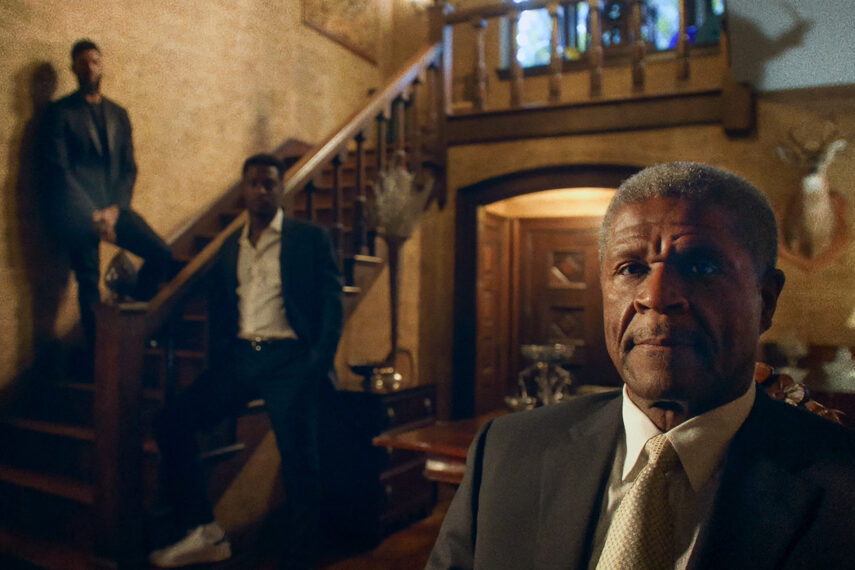
Starz
You touched on this before, but when you were making this, you probably already knew most of the history, but was there anything that revealed itself to you while you were making this that surprised you or took you off guard?
You know, actually, you said as though it was a given that I knew most of the history, and I really didn’t. I mean, the history was not recorded anywhere. It’s not like you could go to its Wikipedia page and find them. So there were constantly [revelations]. I mean, we have a story in the documentary about Shaquille O’Neal getting the offer for the first-ever NBA $100 million dollar contract while he’s standing in Magic City. That was not sitting in a book somewhere. We had to go find that. And there are so many gems like that. We talked to Big Boi about testing “Bombs Over Baghdad,” one of OutKast’s biggest hits ever, in Magic City [as well as] “Whoomp! (There It Is),” an iconic hip hop song, being born in Magic City. All of this is not stuff that we were able to go to a biography and unearth; it was really just running around Atlanta, talking to people, hearing that so and so might have an interesting story, and then saying to ourselves, “Wait a second, that’s historic. That needs to be included.” So many of the anecdotes that you hear in the show were really delightful surprises to the audience, but also to the people that made this show.
Magic City: An American Fantasy, series premiere, August 15, 10/9c, Starz

